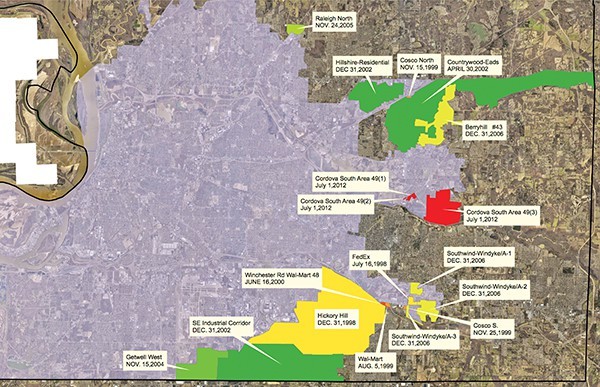NASHVILLE — In a surprise action, the state Senate’s State and Local Committee has voted 5-3-1 (with chairman Ken Yager voting aye) to approve a motion by Senator Bill Ketron (R-Murfreesboro) sending the controversial de-annexation bill (HB 779/SB 749) to summer study.
Voting in the minority on the motion were the bill’s Senate sponsor, Bo Watson (R-Hixson) and Senator Mark Green (R-Clarksville), a key co-sponsor. It was Green’s absence on Tuesday that had postponed a vote until Wednesday’s reconvening of the committee.
The action means that all possible action on the bill is over with until, at earliest, the legislative session that begins in January 2017.
“We really had no idea this was going to happen. But it was the best possible result, obviously. This is really a victory for the entire state,” said Phil Trenary, the Greater Memphis Area Chamber of Commerce head who had been in Nashville last week and this week opposing the bill.
Though the suddenness of the committee’s action took Trenary and other onlookers by surprise, it had become obvious that the bill was in for rough sledding once it hit the Senate committee, where chairman Yager (R-Kingston) supervised a systematic vetting of its contents and numerous witnesses had criticized it in detail.
Some indication of what was to come was the fact that numerous amendments weakening the bill’s force were passed in committee on Tuesday by lopsided votes.
Though six witnesses on Tuesday testified to the commmittee in favor of the bill, it had become obvious from previous testimony of bill opponents last week that resistance to it was serious, influential, and in depth.
Not only Memphis Mayor Jim Strickland but the mayors of two other affected cities, Chattanooga and Knoxville, had warned of the bill’s potentially ruinous effects, fiscal and otherwise, on targeted cities. Representatives of the state’s business community, including Pitt Hyde of AutoZone, and two ranking officers of First Tennessee Bank, seconded that point of view.
Even senators considered friendly to the idea of allowing urban de-annexation procedures had visibly cooled to the provisions of the de-annexation measure sent over from the House after swift ands lopsided passage there.
Those provisions had limited the bill’s effects to only five urban areas which had pursued state law in annexations that the bill, in a provision whose constitutionality was in doubt, considered “egregious.”
Other objectionable provisions included the bill’s allowance of a low ceiling — 10 percent of an annexed area’s population on a petition — to call a de-annexation referendum.
PREVIOUSLY (3-29-16): The ongoing debate in the General Assembly on a bill to allow de-annexation by areas of Memphis and other Tennessee cities that were annexed since the passage of Public Law 1101 in 1998, was renewed Tuesday in the state Senate’s State and Local Committee.
Two amendments to the House bill were approved last week by the Senate committee — one clarifying certain issues of debt obllgations remaining for any de-annexed residents and another expanding the reach of the bill to all municipalities statewide, not just Memphis and the four other urban areas alleged to have pursued “egregious” annexations since the 1998 date.
Both those amendments were regarded as concessions to the delegation that testified in the committee against the bill last week — which included Memphis Mayor Jim Strickland, Chattanooga Mayor Andy Berke, and Knoxville Mayor Madeline Rogero, as well as AutoZone founder Pitt Hyde and two officials of First Tennessee Bank.
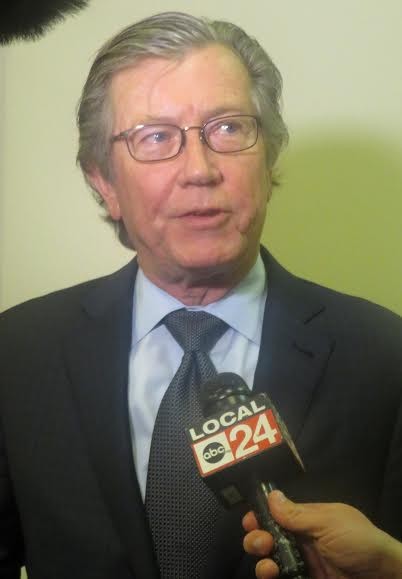 Jackson Baker
Jackson Baker
Phil Trenary
Last week’s testifiers made the point that the de-annexation bill received by the House was overly punitive and potentially financially ruinous to the cities affected. (Strickland testified that de-annexation by all the areas annexed by Memphis since 1998 could cost the already cash-strapped city the loss of property tax revenues ranging from $27 at minimum to a maximum of $78 million.)
Chairman Yager began the renewed hearing on Tuesday before a standing-room-only audience, noting that the witnesses against the bill last Wednesday had been opposed to it and professing a desire “to be fair-minded on an issue this polarizing,” then announcing that six new witnesses favoring the bill would be heard.
The first was Patricia Possel of South Cordova, who said, “The city of Memphis tried to silence us,” and went on to note that her area had been annexed July 1, 2012, more than four years before the next scheduled election in South Cordova.
She called the situation “taxation without representation,” and spoke, in a trembling voice, of the murder of a neighbor, Susan McDonald, in 2015 — clearly, an indication to her that crime had followed upon her neighborhood’s annexation by the city as something of a direct consequence.
Finally, she said, there had been “no disclosure” of any kind to her or other homeowners, at the time of their purchasing property, that they were located within one of Memphis’ annexation preserves, about to lose its independence.
Next up was Terry Roland, the chairman of the Shelby County Commission, who announced that he had heard “bad numbers” being testified to by representatives of the city last week and wanted to present “the straight skinny.” According to his own figures, the de-annexation from Memphis of South Cordova and Windyke-Southwind, the last two areas annexed, would result in a financial gain to Memphis of $3 million — not, as had been claimed, a deficit of $13 million.
Roland also spoke, as he has for years, of the constant departure of citizens from Memphis because of high and unreasonable property taxes. He said that 68,000 people had left Shelby county for DeSoto County, Mississippi in the years 2001-2010.
Roland did concede that if all 10 areas annexed by Memphis since 1998 were able to de-annex themselves (as the original House bill provided), the city would end up the loser, financially, but he made it clear he considered that prospect far-fetched.
The two Shelby County witnesses were followed by John Emerson of Alamo (who had been introduced by Yager earlier as “the father of de-annexation” and who pronounced it absurd that representatives of cities habitually spoke as if there a law of nature that urban municipalities could only expand and never contract.
Three residents of Chattanooga suburbs that had been annexed followed, with variations on some of the themes already addressed. (One of them announced that he did not turn on TV to watch “baseball, football, or Dancing With the Stars,” but was a regular watcher of congressional hearings and stayed up late to watch them. He had determined from that practice that public political debates and processes were essentially shams.)
From that point, the stream of amendments that was interrupted by the close of last Wednesday’s hearing ensued again — the first of them authorized by chairman Yager himself and directly addressing the complaint that Strickland had made of the original House bill — that, while it did require newly de-annexed citizens to continue paying their share of the city’s general obligation debt on a pro rata basis, it did not stipulate anything regarding residual pension and OPEB obligation on the part of those residents.
The Yager amendment would include pensions and OPEB obligations on a pro-rated basis.
Senator Bo Watson of Hixson, a suburb of Chattanooga, and a sponsor of the de-annexation bill, challenged the logic of including those debts, which Watson suggested were “pay-as-you-go” by their nature and that ex post facto assessments would be improperly doubling up on charges to the residents.
He was backed up on those allegations by Senator Todd Gardenhire, another Chattanoogan, who testified from his point of view as a former member of a U.S. Department of Labor committee on pension obligations. In the course of seconding Watson’s assertions that including the new assessments would be double-billing de-annexed residents, Gardenhire got off a series of negative observations regarding the past fiscal performance of the city of Memphis.
Most of those observatios recapitulated criticisms made by state comptroller Justin Wilson about city bookkeeping practices during the administration of former Mayor A C Wharton. “The city of Memphis was not run like a business,” Gardenhire said.
Even so, the amendment was passed by the committee 6-1. It began to seem possible that the optimism for a favorable resolution expressed last week by Strickland and Chamber of Commerce president Phil Trenary might be justified.
That sense was furthered somewhat by discussion later of other new amendments, notably including one by chairman Yager that would raise from 10 to 20 percent the percentage of residents necessary to validate a petition for a de-annexation referendum. This one ultimately passed 7-0, and among those committee members agreeing with Yager that “the bar should be raised” on requirements for a de-annexation petition was state Senator Mark Norris (R-Collierville), a nominal supporter of the bill’s intent.
Not everything was roses. An amendment from state Senator Reginald Tate (D-Memphis) limited the Memphis areas eligible for de-annexation to South Cordova and Southwind-Windyke failed for lack of a second. And another, contemplated by Yager, requiring 66 percent, rather than a simple majority, for passage of a de-annexation referendum, was withdrawn by the chairman.
Asked afterward to assess Tuesday’s actions on the bill, the Trenary said the amendments made the bill “more realistic” but said he still continued to oppose it and was hopeful that the legislature as a whole ultimately would.
Roland’s reaction was one of satisfaction also, and he expressed the hope that the effect of the bill might still be limited to the two recently annexed areas of South Cordova and Southwind-Windyke. “They’re the only ones that are organized,” he pointed out.
An ultimate vote by the committee on the amended bill was delayed out of courtesy to the bill’s main sponsor, state Senator Mark Green of Clarksville, who was absent. (It was Green who last week compared the alleged “egregious” annexations by Memphis and other cities to a Russian occupation of Poland, and Norris wondered somewhat archly on Tuesday how the residents who moved to “Poland” in recent years should be counted in determining the right ceiling for a referendum petition.)
It is hard to imagine Green being altogether favorable to the amendments accepted Tuesday, but, in any case, whatever his opinion or the committee’s vote on the bill, the bill is not likely to be headed to the floor of either House or Senate anytime soon.
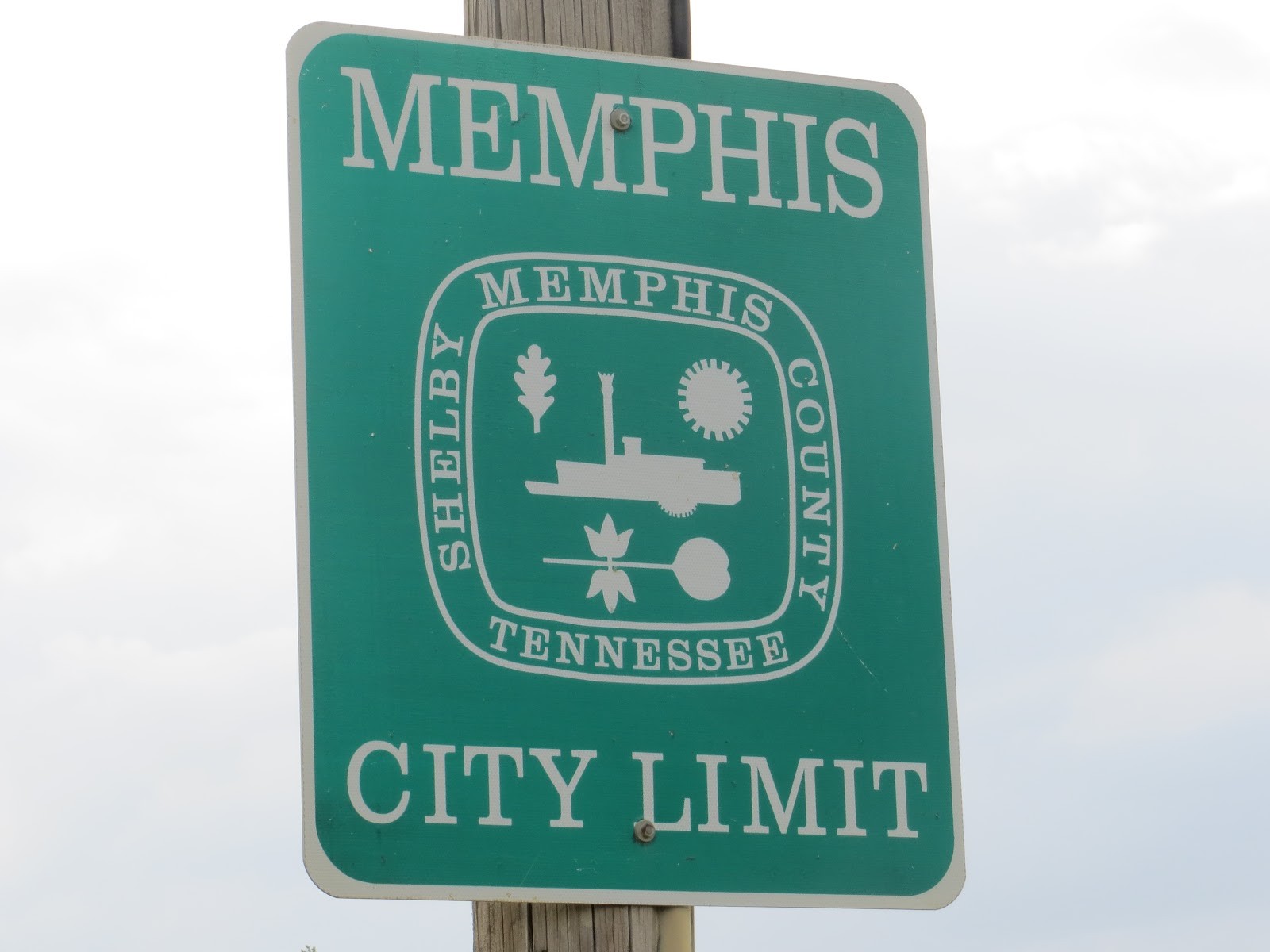
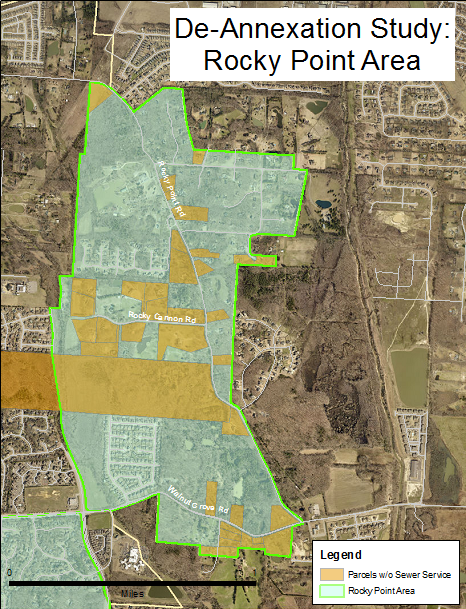
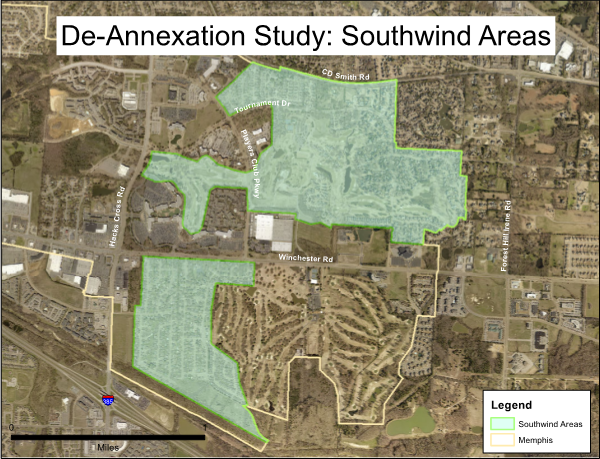
 Jackson Baker
Jackson Baker 